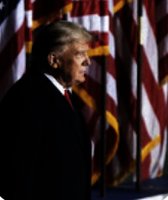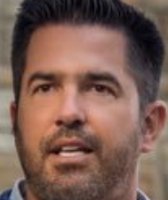Stand up for the facts!
Our only agenda is to publish the truth so you can be an informed participant in democracy.
We need your help.
I would like to contribute
Rubio's statements on Iraq have shifted but not flipped
After former Gov. Jeb Bush’s comments about whether he would have invaded Iraq drew attention, other 2016 GOP presidential candidates staked out their positions, including U.S. Sen. Marco Rubio.
Fox News Sunday’s Chris Wallace aggressively questioned Rubio on his positions in an interview May 17, asking him if he’d changed positions on Iraq.
After rolling film of previous interviews with Rubio, Wallace asked Rubio, "Senator, isn't that a flip? Six weeks ago, it made sense to invade Iraq in 2003. Now, you say it was a mistake."
"No, they're two different questions. It was not a mistake," Rubio answered. The two went back and forth in an animated exchange, with Rubio concluding:
"I doubt very seriously that the president would have gotten, for example, congressional approval to move forward with an invasion had they known there were no weapons of mass destruction. That doesn't mean he made the wrong decision, because at the time he was presented with intelligence that said there are weapons of mass destruction."
We decided to put Rubio’s statements on our Flip-O-Meter, which tracks whether a politician has shifted his views and to what extent without making a judgment about such changes. We found that Rubio’s positions have shifted over the years, but he hasn’t fully reversed himself, either.
Rubio as a Senate candidate in 2010
Rubio was a state representative when Congress voted for the Iraq resolution in 2002 that led to the 2003 invasion. We searched and found no statements about the war by Rubio at the time.
In October 2010, Rubio was asked about the Iraq war by Tampa Bay Times’ political editor Adam Smith during a Senate campaign debate on CNN.
Smith: "Mr. Rubio, is America safer and better off for having gone to war in Iraq?"
Rubio: "I think the answer ultimately is yes. First of all, the world is better off because Saddam Hussein is no longer in charge in Iraq. And I think we have to remind ourselves of that, is that the world is a better and safer place because Saddam Hussein no longer is in charge of that country. …You know, there are a lot of issues that that society and that that nation-state faces. But it is better off today than it was when Saddam Hussein (was there)."
Rubio as a presidential candidate
As Rubio moved toward his presidential bid in April, he has tried to establish himself as the hawkish foreign policy expert. He has called for increased military funding and building up weapons, and he often talks about threats faced from Iran and from ISIS.
In March as a deadline approached on the nuclear deal with Iran, Rubio talked about both Iran and Iraq on Fox News’ The Five when asked, "Was it a mistake to go to war to Iraq?"
"No, I don't believe it was. The world is a better place because Saddam Hussein doesn’t run Iraq," he said, arguing that Iraq could have pursued a weapon. "So I think, hindsight is always 20/20, but we don't know what the world would look like if Saddam Hussein was still there."
Featured Fact-check
Weeks later, after Rubio’s speech to the Council on Foreign Relations May 13, journalist Charlie Rose asked: "If you look at the Iraq war, after finding out there were no weapons of mass destruction, would you, if you knew that, have been in favor of the Iraqi invasion?"
Rubio: "Well, not only would I not have been in favor of it. President Bush would not have been in favor of it. And he's said so."
Rose: "But Vice President Cheney and others have said, in the same administration, we'd have wanted to go ahead, notwithstanding."
Rubio: "Well, President Bush has said that he regrets that the intelligence was faulty. I don't think the Congress would have voted in favor of authorization if they didn't know that. But let's also be fair about the context. Yes, there was intelligence that was faulty, but there was also a history with Iraq of evasion. It was a country that had had mobile units in the past that it used for both C.W., you know, chemical weapons, and biological capability. It is a country that had actively not so long in the past, at the moment that that decision was made, had invaded a neighboring country in Kuwait."
So did Rubio change his tune here?
We asked experts if they viewed Rubio’s three key statements on Iraq -- in 2010, March and in May -- as a flip-flop or a change in stance. We did not find agreement.
Danielle Pletka, a foreign and defense policy expert at the conservative American Enterprise Institute, said she sees Rubio’s statements as consistent.
"Had he known that there were no WMD (in the form described at the time by the intelligence), he would not have ordered the invasion of Iraq. However, having invaded Iraq and deposed Saddam, the world is a better place," she told PolitiFact. "One might add that the world would be a better place without Castro, Kim Jong Un, the Chinese Communist Party, and any number of others without implying any intention of invading those countries or removing those leaders."
But some other experts saw either conflicts in Rubio’s statements or said that his answers left holes -- albeit in part because of the question asked.
"Clearly at the CFR he was recognizing what the majority of the public realizes: The war in Iraq was a huge mistake. But he is also taking a similar line to Jeb Bush in nonetheless arguing that it is a good thing that Saddam is gone," Michael Desch, co-director of the Notre Dame International Security Program. "While these two things are certainly in tension, they are not outright contradictory, which probably explains why they have become the talking point for a number of Republican nominees on a potentially very dicey issue for them."
Rubio’s comments during the 2010 Senate debate that the country is better off without Hussein "leaves to the imagination whether we are enough better off to justify the costs," said Barry Posen, director of the MIT Security Studies Program.
But in March on The Five, he was asked whether the war was a "mistake."
"This requires a full assessment. Not ‘given that we fought the war, did anything good come of it?’ but in the net, was it a mistake? And he answered no. So I think on that one, you can call it ‘flip flop,’ " Posen said.
Our ruling
In earlier interviews, Rubio said that the United States is safer having gone to war and that it wasn’t a mistake -- but in those interviews he wasn’t directly asked the question about whether he would have favored the invasion, had we known in 2003 that we had faulty intelligence.
Rubio was asked May 13 if he would have been in favor of the Iraq War if it was known at the time that there were no weapons of mass destruction. Rubio said, "Not only would I not have been in favor of it. President Bush would not have been in favor of it."
As for what he would have favored if it had been known that there were no weapons, Rubio said on May 17 that it was unlikely that Congress would have given approval for Bush to move forward.
All these statements seem a little different, and add up to a partial change of position. We rate Rubio’s statements on Iraq as a Half Flip.
Our Sources
Council on Foreign Relations, Speech by U.S. Sen. Marco Rubio, May 13, 2015
Fox News Sunday, "Sen. Marco Rubio answers critics on immigration, foreign policy," May 17, 2015
Fox News The Five, Transcript of U.S. Sen. Marco Rubio interview, March 30, 2015
CNN, Transcript of Florida U.S. Senate debate, Oct. 24, 2010
Foreign Policy, "Did Marco Rubio just flip-flop on the war in Iraq?" May 13, 2015
Bloomberg, "Marco Rubio: I’d oppose Iraq war if we knew what we know now," May 13, 2015
New York Times’ First Draft blog, "Marco Rubio’s answers on Iraq a departure from the past," May 13, 2015
National Review, "Did Marco Rubio flip-flop on Iraq war?" May 13, 2015
The Hill, "Cruz: ‘of course’ Iraq was a mistake," May 12, 2015
Politico, "Rand Paul tees off on Jeb Bush, Marco Rubio," May 13, 2015
Miami Herald’s Naked Politics blog, "Marco Rubio: I wouldn’t have gone into Iraq knowing it didn’t have WMDs," May 13, 2015
Tampa Bay Times’ The Buzz blog, "Marco Rubio and Iraq: two questions, two answers (video)," May 13, 2015
Buzzfeed, "Marco Rubio said two months ago it wasn’t a mistake to go to war against Iraq," May 13, 2015
Washington Post, "Rubio says he would not have invaded Iraq knowing what we do know now. That’s not what he said six weeks ago," May 13, 2015
PolitiFact, "Jeb Bush, Hillary Clinton and authorizing the war in Iraq," May 12, 2015
PolitiFact Florida, "Anti-Rubio group says Rubio thinks troops are coming out of Iraq ‘too fast,’" May 8, 2012
Interview, Alex Conant, U.S. Sen. Marco Rubio campaign spokesman, May 14, 2015
Interview, Barry Posen, Ford International Professor of Political Science at MIT, Director of the MIT Security Studies Program, March 15, 2015
Interview, Michael Desch, Co-director, Notre Dame International Security Program, May 15, 2915
Interview, Danielle Pletka, American Enterprise Institute Senior Vice President, Foreign and Defense Policy Studies, May 14, 2015
Interview, Elliott Abrams, Council on Foreign Affairs Senior Fellow for Middle Eastern Studies and former adviser for President George W. Bush’s White House, May 14, 2015
Interview, Christopher Preble, Cato Institute vice president for defense and foreign policy studies at the Cato Institute, May 13, 2015
Browse the Truth-O-Meter
More by Amy Sherman
Rubio's statements on Iraq have shifted but not flipped
Support independent fact-checking.
Become a member!
In a world of wild talk and fake news, help us stand up for the facts.




































